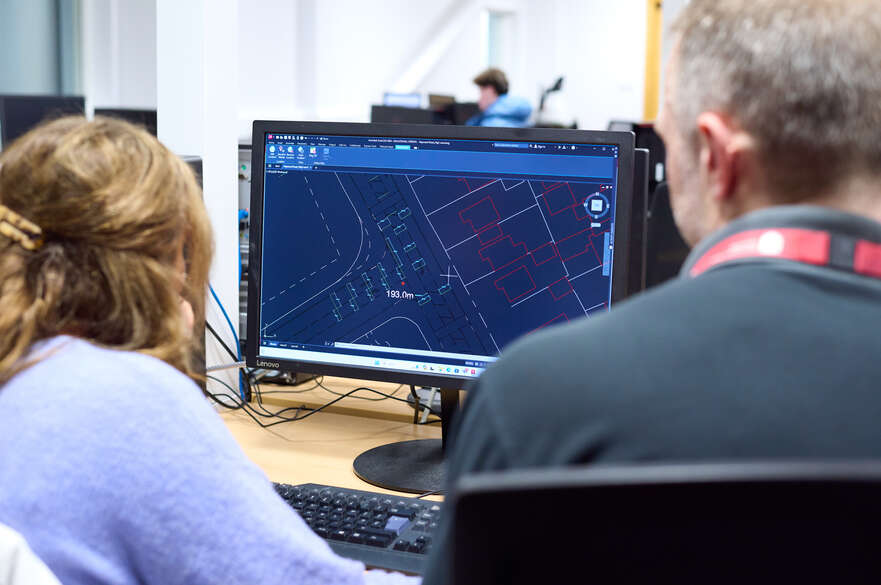Retro-Fit Technologies for the Construction Professional (ten weeks)
About this course
On this course, you’ll learn about various retrofit technologies and the practical and theoretical issues relating to sustainability, zero-net and building regulations.
It’s useful for anyone in the construction sector who’s looking to develop skills as a retrofit coordinator and increase their level of project engagement and productivity.
Skills Bootcamps
Our Skills Bootcamps are funded by The Department for Education under the Skills for Life programme. Granting eligible learners across the Nottinghamshire, Derbyshire, Leicestershire, or Lincolnshire regions access to the technical training required to secure employment within the low-carbon construction sector.

-
Benefit from learning with an experienced tutor who has established links to the profession and significant experience working in varied practices.
-
On successful completion of the course, you will receive a digital certificate of attendance and a digital badge.
-
Engage with like-minded professionals in a collaborative studio setting that encourages idea sharing.
-
With a limited class size you'll have the one-to-one attention you need to ensure you leave with the skills to continue developing your designs at home or work.
What you’ll study
This course will help you understand the mechanisms of building efficiency in existing dwellings and learn how to select appropriate retro-fit measures.
You’ll be introduced to a variety of different modelling, including the Standard Assessment Procedures (SAP) for domestic and non-domestic settings.
What will I gain?
A CPD certificate will be issued upon successful completion of the course.
Should the assessment be successfully completed, the course provides 5 NTU undergraduate credits.
On the course you will:
- gain an overview of the PAS2035 role (retrofit coordinator)
- consider the use of modern technology and equipment including moisture meters, endoscopes, thermal imaging cameras and drones
- learn about managing moisture risk, thermal efficiency, air tightness and ventilation
- think about energy management and renewable energy systems
- learn how to improve building services (heating, hot water, lighting to power)
- find out about improving floors, roofs, walls and windows
- learn about green building inspections, commissioning operations and retro-fit.
By the end of the course, you will:
- be able to make logical recommendations based on the information available
- be confident in solving problems
- be comfortable in generating new ideas, innovations and solutions
- communicate information, ideas and concepts effectively using the appropriate software
- have improved your interpersonal skills and ability to work constructively in a team
- be able to demonstrate a range of transferable skills that be will valuable in the workplace.
We regularly review and update our course content based on student and employer feedback, ensuring that all of our courses remain current and relevant. This may result in changes to module content or module availability in future years.
Campus and facilities
You will be based in the School of Architecture, Design and Built Environment on the City Campus.
You will receive an email one week before the course starts with joining instructions on where to go for the first day.
You’ll also have access to our library to use outside of your short course; whilst you can’t reserve or take away books, you are welcome to use them as a resource for research and referencing.
Entry requirements
UK students
To be funded, the learners must:
- Be aged 19 or older, on or before 31 August within the ESFA funding year (01 August – 31 July).
- Have the right to work in the UK - this can be checked on gov.uk/view-right-to-work.
- Meet residency requirements to live in Derbyshire, Nottinghamshire or Lincolnshire.
Additional requirements for UK students
There are no additional requirements for this course.
International students
To be funded, the learners must:
- Be aged 19 or older, on or before 31 August within the ESFA funding year (01 August – 31 July).
- Have the right to work in the UK - this can be checked on gov.uk/view-right-to-work.
- Meet residency requirements to live in Derbyshire, Nottinghamshire or Lincolnshire.
Additional requirements for international students
There are no additional requirements for this course.





